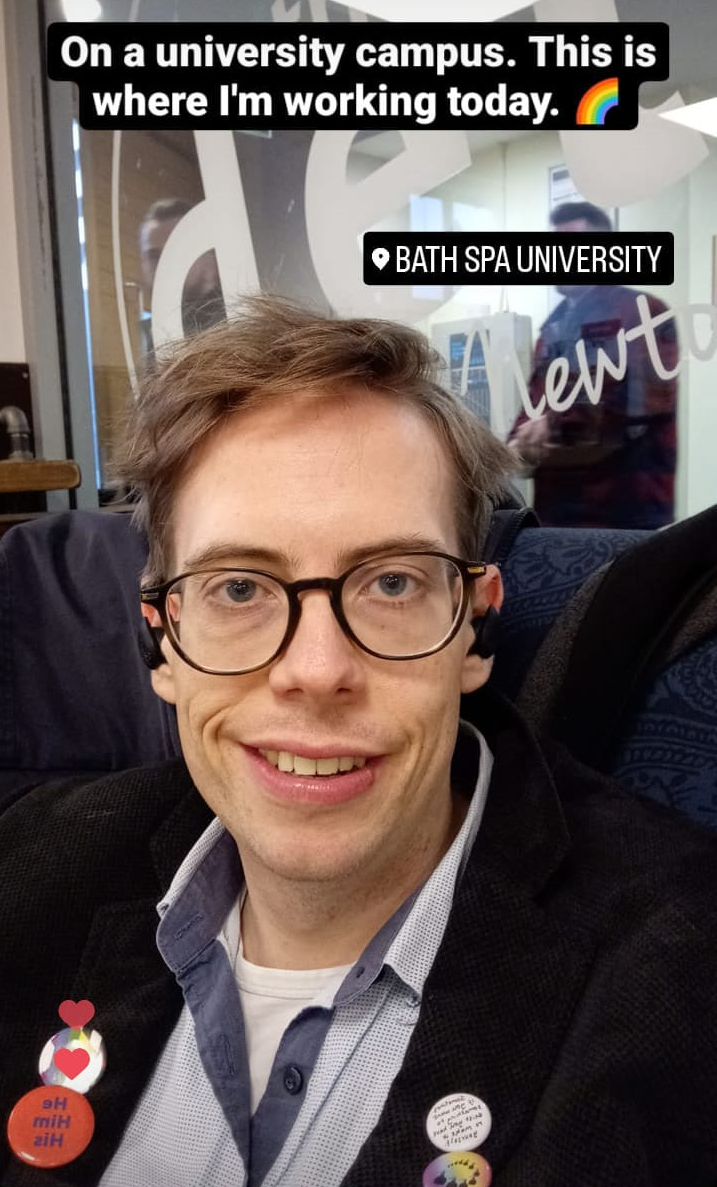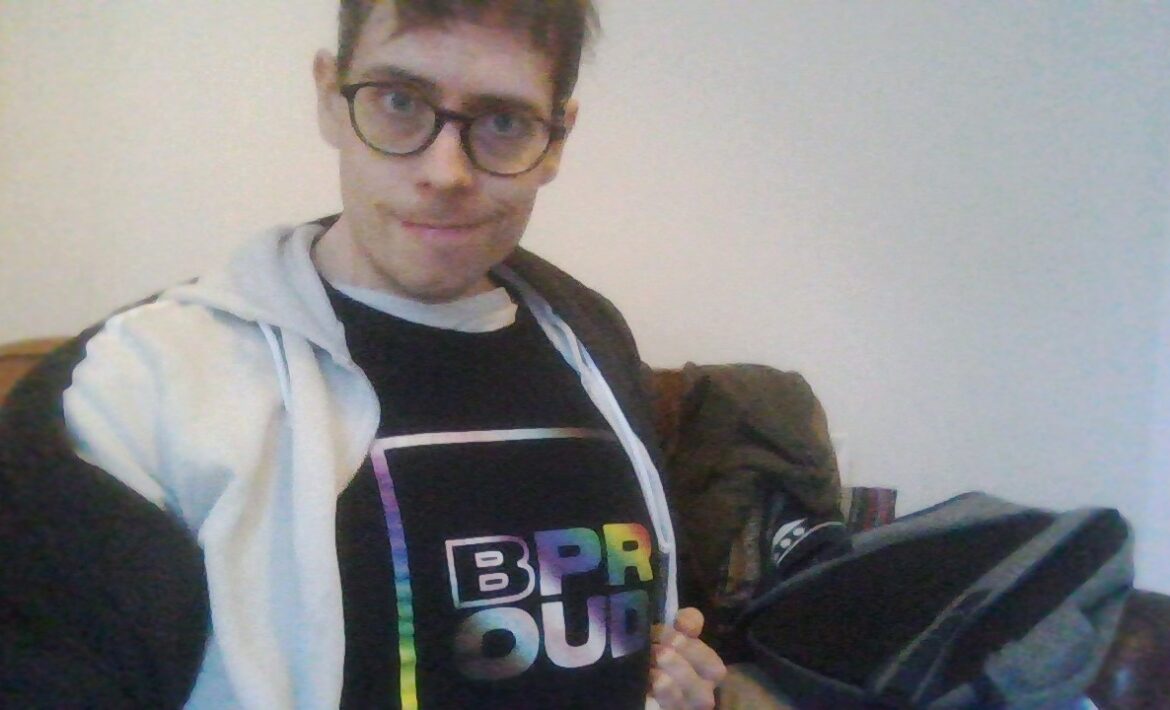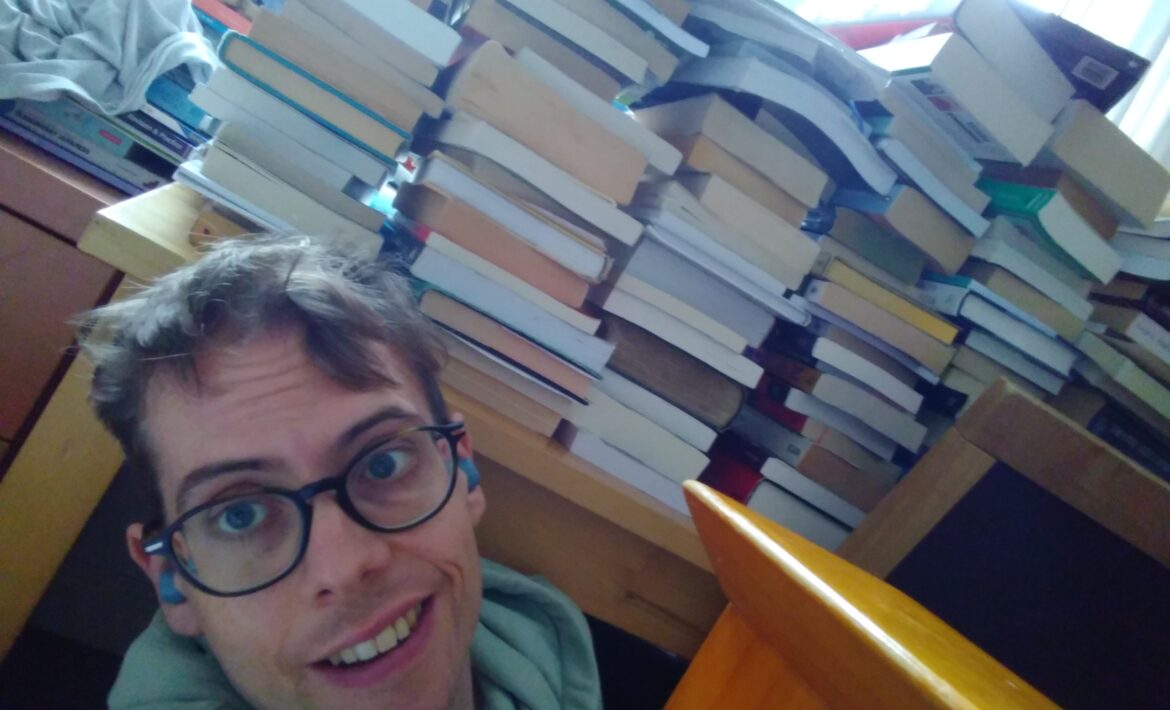
Monday 12th December 2022: Communities and Experience Groups?
Hi everyone!
It’s been a hot minute, I know. I’ve been burned out and exhausted, ill and overworked, stressed the hell out and frustrated that I’ve had to take time off. In short, pretty chillaxed for an autumn season. I have the weird idea that the year is in two halves: January until the summer, then the summer until Christmas. Therefore, I should be able to get the same amount of shit done that I do for the first part of the year.
Obviously, I don’t. I can’t. I’m a stupid silly dumb-dumb with a wrong sense of time and consequent expectations for myself. I am working less than I did a year previously, sure. But I’m also supporting my partner (his emotional rollercoaster over the past few months will be part of the book, don’t worry), taking care of admin and practicalities, making sure we are housed, fed and warm (a difficult task in 21st century Britain) and that I’m healthy and sane. All of these added together make for a pretty daunting schedule.
Now I’m officially contracted to write a book, I’m starting to get the question: “So? How’s it going?” Well, my answer is always it’s never fast enough. That’s the truth. I’d love to have 30.000/60.000 words done by now. Truth is, I don’t. I’m waiting to have the brain space to read a number of books as research.
Yes, though literature, reading and writing are special interests I share with my partner and make my brain feel good, I also need energy and concentration to engage with them in the first place. If my brain is too scattered, I won’t be able to give all my concentration to a book, either writing or reading one. If I’m too anxious, tired or frustrated, same difference. I need a buy-in for hyperfocus, I need no distractions. Only then can I properly engage my brain.
Of course, the other book is also in my brain a lot. Obviously, since those characters have been living there rent-free for 6 years now and plot, style and structure have been aging like fine wine. I’m fighting the part of myself that warns me not to wait too long, or the wine will turn to vinegar. But that part of me is a prick and should be ignored at all times.
My final job for 2022 will be this Friday, a half-day training for Survivors UK, a charity that supports men who’ve faced sexual assault. Then, a few weeks rest/writing time. I’ll be continuing my work in 2023, speaking at Phoenix College and LAMDA (London Academy for Music and Dramatic Arts), both in London, in the first week of January.
Writing this blog for today is something I’m doing because I’m feeling that I just need to do. It’s because of something that I have been working towards for about a year. I’m pretty smug about it.
R U EXPERIENCED?
So in 2019, I ran the Autism Experience Group for Oxford Health NHS Foundation Trust. It didn’t end in the best way possible, but I’m forever grateful I was given the chance to fall arse-backwards into disability activism, creating something that I’m daring to call “a career” and a huge number of people I’ve been able to interact with and… “help,” they called it? I’ve been able to be a part of people’s lives and be a positive influence, following my values, using my specific skills.
After being headhunted at a Tony Attwood talk in Spring 2018, I was brought in for weekly research tasks at Oxford Health, trying to assess the current standard of healthcare provision in the local area. What I found was not good. I was pro-actively going round and chatting to people, trying to figure out how I could best assess a situation, so the neurodiversity lead at the time proposed a group setting where autistic people could give feedback on the NHS.
I had a few red lines, though. The space needed to be sensorily healthy for everyone involved. People should be paid for their time and travel expenditure, since they were providing a service to the NHS that they pay for through taxation. The most important red line was: no neurotypicals in the room.
To my surprise, they were all met!
After discussing this, she introduced me to Mike, who was an autistic nurse in training at the time, now fully qualified. Together we would lead the group. I was in charge of the conversation, showing slides and leading discussions.
THE FIRST ONE
In anticipation of the first group meetings, I ran a stand at an Autism Oxford event in January 2019. It was brilliant. I remember working flat-out for hours, being so proud of the connections I was making. There was so much interest and I even made some lasting friends on that very day.
I was interviewed by a journalist for internal NHS newsletters and my face was plastered over the Oxford Health website.
The first sessions were in early Spring, on the site where Connor Sparrowhawk died, an irony not lost on those who knew.
We would run two sessions a month, both on Thursday nights. The amount of people there was higher, far higher than expected. Over two dozen autistic people regularly showed up each month. The best thing about the meetings was the all-autistic safe space. We made changes to the lighting, recording equipment and slides up to the starting time. Outside, there were a few staff members who could provide mental health support to those who needed it.
Turns out, some of the staff didn’t get the memo. Or, rather, they did and just didn’t agree with it. One person even broke into the room several times without our consent. For your information, this was someone high up in patient experience.
That sounds horrible when you look at it like that, but it’s very important to realise that running a safe space is a trigger for those who don’t believe they are privileged. If people have been working in an organisation like the NHS for a while, they highly self-identify with it. Their self-image is fundamentally tied up with the work that they do. They do good work, so they are good people. Therefore, any place they enter, is a better, safer one, because they are there.
Hearing that your mere presence is a problem for the people you’ve spent your working life working for is difficult. It presents people directly with the reality of their privilege. Most people are unwilling or unable to accept the reality of that privilege when they’re confronted with it. Instead, they lash out against the very people on who they had built their self-image.
Creating a safe space is difficult, particularly when it means that privileged people have to do some emotional labour and set aside their own egos. Managing that is an emotionally difficult needle to thread, but it’s also not my job to do as an expert by experience.
RESULTS
From that month on, autism and neurodiversity took centre stage at Oxford Health. I went to a large number of events, including the Autistica conference, The Future is Gold conference where I met Jamie Knight and Steve Silberman and Autscape 2019. I developed my interest in radical politics and started being able to use my learning to become an advocate. I had been interested in being an advocate but never had the courage to do it. Now I was there, showing up, doing the work. I even ran an Autistic Pride event in Oxford in June, after running a stall at Oxford Pride. It was brilliant. I’m still massively proud of everything we did.
I was always surprised when people at the experience group expressed how much the group meant to them, as almost a therapeutic endeavour. It brought people closer together, it made life easier. Everyone felt like they’d found community where before they had lacked it. It even improved people’s mental health.
I had been very clear that I’m not a therapist. I am not in the business of improving people’s wellbeing. I tried that as a comedian, and I wasn’t very good at it.
But the fact that it was so safe, so valuable, so easy to run these groups, never left me. The difficulty was all to do with the neurotypical staff members and their shifting expectations of me and what they could offer. Since I was the only autistic person in the building and the only autistic person with a seat at the table, I became emblematic of the ‘other’, which can’t have helped. I also became more aware of what the autistic community needed and deserved versus the maintenance of the system in the NHS.
The Autism Experience Group ran for 9 months, taking breaks for the summer and ended because it was a victim of its own success. Funding-wise, paying so many people for their time was an investment Oxford Health was unable to commit to at the time. This is understandable, it was 2019 after all in a Britain riven by political fuckery and Conservative jiggery-pokery. The Long-term plan on the autism strategy was continually delayed by changes in Prime Minister, European and Local elections, then the disastrous election of 2019. A turn even further to the right was now inevitable. The NHS is led by politicians, so their commitments to ending it, in the case of the Tories, meant that giving disabled people a voice in their own care was in a different universe to the Conservative intake of 2019.
I was also struggling. I was permanently overworked and underslept. I battled my way through what essentially became a full-time job on top of my full-time job teaching. I cared so deeply about this that I let my mental health plunge. I was still on too much medication and I fell into addictive behaviours. The Oxford Health staff didn’t know how to deal with me. Something had to give.
NOW WHAT
After the Experience Group came to an end, so did my part-time work with the NHS. I went back to teaching full-time, terrified that I’d be fired because I’d been so busy with my other job. I was miles behind on my novel, too. Then and COVID struck. I started my own business and launched this website.
When moved to Bath, I started work as a specialist mentor. When joining, I did say I was able to run group sessions. That didn’t materialise. It wasn’t in the business practices of the company I work through. However, after one of my mentees had a health crisis (a dental health crisis), I was fighting to get him a meeting with a dentist. Having done the experience group, I knew exactly how difficult it was to get anything on the NHS, let alone emergency dental surgery. I kept on going though. I was on the phone for ages, writing email after email, advocating for this student to get something, anything.
The university (Bath Spa University) was frustrated too. In early December, one of the heads of the disability service called me to have a conversation. I was still tired and burned out, so I was hyper-aware of the frustration in her voice. My filter was gone, so I said that the university was not meeting its safeguarding expectations. She got irritated in response.
When we’d both calmed down a bit, I called my contact for the company I work through. She was surprised that I’d even had this conversation. Most mentors wouldn’t go “above and beyond to advocate” for their students. I didn’t think I had. Frankly, I still don’t think that I did. I did what I believe is the bare minimum to keep students safe, which says more about the average mentor than it does about me. My contact spoke to the Bath Spa disability service, saying that yes, it was in the job description of mentors to advocate for their students, particularly related to safeguarding.
A week later, I was invited onto the Bath Spa university campus, about 20 minutes’ cycle away from me. The woman I had the argument with was there with her dog (this helped immensely) and proposed I start a face-to-face wellbeing group for autistic students, as a form of preventative healthcare. That became reality this week. On Thursday night, after many emails and meetings back and forth between me and Joe, the new neurodiversity lead at Bath Spa university, we had our first face-to-face session.
Yes the attendance wasn’t as high as it had been for the Oxford Health sessions. But it was all quite last-minute and the Christmas break is just around the corner. But the moment the door shut and the students got comfortable, it was as if nothing had changed. I didn’t have Mike alongside me, but the same ease with which the experience group played out was right back. As for the students? Well, I’m not 100% sure, but the responses we’ve had have been excellent thus far. We’re going to do this next week and then once a week for the rest of Term 2. Let’s see where it brings us.
The most powerful lesson I’ve learned in my life is that the first step to recovery is community. We are not good in isolation. We need people like us we can relate to, rather than those we have to change ourselves for. I hope this group, like the last one, can be that place.
Next week is my 35th birthday, the week after that is Boxing Day. I’m not expecting a blog before either of those, but if I do, it will be a reflection on the year and maybe some excellent videos.
Ok, lots of love,
Jorik



Hi Jorik, I so appreciate the honesty and grounded-ness of your blogs which are also informative.
I think what you say about the triggering effect of safe spaces on people who have decided they are safe people is extremely astute. The NHS is already knitted into our national psyche in profound ways, and how much more true this must be for many people who work in it. I also really recognise the problem of lived experience work intersecting with (and sometimes contributing to) burnout – I am in that place this year (there are other factors as well, mind you) and I’m glad you’re talking about this so openly, because I think for autistic people in these settings there is such a lot of pressure on us, some external and some self-inflicted, to be ultra-professional in a way that excludes being able to show vulnerability. It helped me to hear that other people doing this kind of work face these pressures.